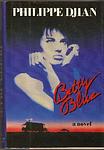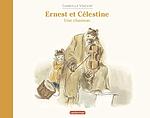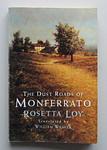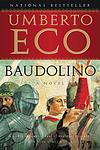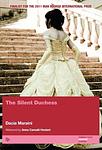The Greatest Italian, French "Fiction" Books Since 1980
Click to learn how this list is calculated.
This list represents a comprehensive and trusted collection of the greatest books. Developed through a specialized algorithm, it brings together 290 'best of' book lists to form a definitive guide to the world's most acclaimed books. For those interested in how these books are chosen, additional details can be found on the rankings page.
Genres
Countries
Date Range
Reading Statistics
Click the button below to see how many of these books you've read!
Download
If you're interested in downloading this list as a CSV file for use in a spreadsheet application, you can easily do so by clicking the button below. Please note that to ensure a manageable file size and faster download, the CSV will include details for only the first 500 books.
Download-
1. The Name of the Rose by Umberto Eco
Set in a wealthy Italian monastery in the 14th century, the novel follows a Franciscan friar and his young apprentice as they investigate a series of mysterious deaths within the monastery. As they navigate the labyrinthine library and decipher cryptic manuscripts, they uncover a complex plot involving forbidden books, secret societies, and the Inquisition. The novel is a blend of historical fiction, mystery, and philosophical exploration, delving into themes of truth, knowledge, and the power of the written word.
-
2. The Lover by Marguerite Duras
"The Lover" is a poignant exploration of forbidden love, power dynamics, and colonialism. Set in 1930s French Indochina, it tells the story of a tumultuous and passionate affair between a 15-year-old French girl and her wealthy, older Chinese lover. The narrative delves into the complexities of their relationship, the societal norms they defy, and the inevitable heartbreak that follows. The protagonist's struggle with her family's poverty and her mother's mental instability further complicates the story, making it a compelling exploration of love, desire, and societal constraints.
-
3. Foucault's Pendulum by Umberto Eco
This novel follows three intellectual friends who work at a small publishing house. As a joke, they start inventing a conspiracy theory about a secret society that has been manipulating world events for centuries. However, as they delve deeper into their own fabrication, they begin to lose sight of what's real and what's not. Their lives take a dangerous turn when actual secret societies believe they hold the key to a universal secret and will stop at nothing to obtain it.
-
4. If Not Now, When? by Primo Levi
This novel follows a band of Jewish partisans behind German lines during World War II. They are a diverse group from different countries and social backgrounds, all brought together by the common goal of sabotaging the Nazi war effort and surviving the Holocaust. The narrative explores their various experiences, the challenges they face, their acts of resistance, and their hopes for a future free from oppression. The title reflects the urgent necessity of their mission and their determination to fight back against their persecutors.
-
5. The Elementary Particles by Michel Houellebecq
"The Elementary Particles" is a provocative novel that explores the lives of two half-brothers, one a molecular biologist and the other a disenchanted teacher, against the backdrop of late 20th-century France. The narrative delves into their personal struggles and emotional turmoil, resulting from their dysfunctional upbringing by a self-absorbed, hedonistic mother. Throughout the novel, the author uses their stories to critique contemporary society, touching on themes such as sexual liberation, consumerism, and the decline of traditional values. The book also delves into the implications of scientific advancements, particularly in the field of molecular biology.
-
6. My Brilliant Friend by Elena Ferrante
This novel tells the story of two friends, Elena and Lila, growing up in a poor neighborhood in Naples, Italy in the 1950s. Their intense, complicated friendship is marked by competition, mutual respect, and deep affection. As they navigate the challenges of adolescence, including family drama, academic struggles, and romantic entanglements, their bond is tested and transformed. The narrative explores themes of female friendship, social class, education, and the struggle for personal autonomy in a patriarchal society.
-
7. Platform by Michel Houellebecq
"Platform" is a provocative novel that explores the intersections of sex, business, and terrorism. The protagonist, a middle-aged man working in the French Ministry of Culture, embarks on a journey to Thailand after the death of his father. While there, he falls in love with a travel executive and they start a business capitalizing on sex tourism. However, their venture is violently disrupted by an extremist group, leading to tragic consequences. The novel is a critique of Western consumerism and a commentary on the clash between Western and Islamic cultures.
-
8. Suite Française by Irène Némirovsky
"Suite Française" is a two-part novel set during the early years of World War II in France. The first part, "Storm in June," follows a group of Parisians as they flee the Nazi invasion. The second part, "Dolce," shows life in a small French village under German occupation. The novel explores themes of love, loss, and survival, and provides a unique perspective on life in France during the war. The book was written during the war but was not discovered and published until many years later.
-
9. Silk by Alessandro Baricco
"Silk" is a historical fiction novel that tells the story of a 19th-century French silkworm merchant who travels to Japan for business. During his travels, he becomes enamored with a mysterious woman. His unrequited love for her haunts him for the rest of his life, even as he returns to France and continues his life there. The novel explores themes of love, longing, and the profound impact that brief encounters can have on one's life.
-
10. The First Man by Albert Camus
"The First Man" is a semi-autobiographical novel that explores the life of a man named Jacques Cormery, who grows up in poverty in Algeria, loses his father at a young age, and struggles with his relationship with his illiterate mother. The narrative delves into themes of identity, memory, and the human condition, as Jacques attempts to understand his past and his father's life, while simultaneously grappling with the harsh realities of colonial Algeria. Despite the challenges, Jacques remains determined to rise above his circumstances through education and personal growth.
-
11. The Neapolitan Novels by Elena Ferrante
"The Neapolitan Novels" is a four-part series that explores the intricate and lifelong friendship between two women from Naples, Italy. The series spans several decades, beginning in the 1950s, and provides a detailed examination of the women's lives, struggles, and the societal pressures they face. The narrative delves into themes of identity, friendship, love, violence, and socio-political changes in post-war Italy. The series is known for its rich character development and vivid portrayal of female friendship.
-
12. Troubling Love by Elena Ferrante
This novel follows a woman who returns to Naples after her mother's mysterious death, determined to understand the enigmatic life her mother led. As she delves into her mother's past, she uncovers a web of secrets and discovers more about her own identity in the process. The narrative explores themes of mother-daughter relationships, identity, and the power of the past.
-
13. Betty Blue: The Story of a Passion by Philippe Djian
Betty Blue: The Story of a Passion is a tragic love story set in rural France. The novel follows the passionate and tumultuous relationship between a handyman and a free-spirited, mentally unstable woman named Betty. As their relationship deepens, Betty's mental health deteriorates, leading to a series of dramatic and heartbreaking events. The story is a raw and poignant exploration of love, mental illness, and the devastating consequences of passion.
-
14. Pereira Maintains by Antonio Tabucchi
"Pereira Maintains" is a novel set in the backdrop of 1938 Portugal during the fascist dictatorship of Antonio de Oliveira Salazar. The narrative follows Pereira, a widowed, overweight editor of the culture section of a second-rate Lisbon newspaper, who becomes politically awakened after meeting a young anti-fascist. As he grapples with his conscience, he risks everything to help his new friend and his pregnant girlfriend escape to safety. The story is a compelling exploration of the struggle for moral integrity in a climate of political oppression.
-
15. Whatever by Michel Houellebecq
"Whatever" is a satirical novel that explores the life of a depressed and disillusioned computer programmer working for a software company in Paris. The protagonist's life is characterized by his cynicism and indifference towards his job, his failed relationships, and society at large. His only relief comes from his philosophical musings about life and the human condition. The novel is a bleak critique of modern society and the isolation and alienation brought about by technology and capitalism.
-
16. Childhood by Nathalie Sarraute
"Childhood" is a memoir that delves into the fragmented memories of the author's early years, exploring the complexities of growing up and the formation of identity. Through a series of vignettes, the narrative captures the nuanced emotions and experiences of a young girl navigating her way through the challenges of family dynamics, societal expectations, and self-discovery. The author employs an innovative literary style, characterized by introspection and a stream-of-consciousness approach, to reflect on the elusive nature of memory and the ways in which our childhood experiences shape who we become.
-
17. Ernest And Celestine by Gabrielle Vincent
"Ernest And Celestine" is a heartwarming children's book about an unlikely friendship between a bear named Ernest and a young mouse named Celestine. Despite societal expectations and prejudices, the two form a deep bond and defy the norms of their respective worlds. Through their adventures and challenges, they teach readers the importance of acceptance, friendship, and the power of love.
-
18. Segu by Maryse Condé
"Segu" is a historical novel that delves into the lives of the Traore family, a noble lineage within the Bambara Empire of Segu (present-day Mali) during the late 18th and early 19th centuries. As the region faces the pressures of colonialism, the slave trade, and religious upheaval from both Islam and Christianity, the family members experience profound transformations in their personal identities and loyalties. Through their diverse and often conflicting paths, the novel explores the complex interplay of social, political, and cultural forces shaping West Africa during a period of intense turmoil and change.
-
19. L'amour, La Fantasia by Assia Djebar
"L'amour, La Fantasia" is a powerful and deeply personal exploration of the complex relationship between language, history, and identity. Through a blend of memoir, fiction, and historical analysis, the author delves into her own experiences as an Algerian woman, tracing the intertwined narratives of colonialism, feminism, and cultural heritage. With poetic prose and a profound sense of empathy, the book offers a poignant reflection on the struggles and triumphs of women in Algeria, ultimately celebrating the resilience and power of female voices.
-
20. I'm Not Scared by Niccolò Ammaniti
Set in a small Italian village during the scorching summer of 1978, this novel tells the story of a 9-year-old boy who discovers a horrific crime being hidden by the adults in his community. The boy, while exploring an abandoned farmhouse, stumbles upon a young boy being held captive in a hole. As he tries to help the captive boy, he is forced to face the moral complexities of his world and the terrifying realization that his own father might be involved in this cruel act. The story is a poignant exploration of innocence, friendship and the loss thereof, and the harsh realities of adulthood.
-
21. The Dust Roads Of Monferrato by Rosetta Loy
Set against the backdrop of rural Italy, the novel weaves a rich tapestry of family saga and historical transformation. It follows the lives of several generations of a family in the Monferrato region, as they navigate the tumultuous changes of the 20th century. Through wars, social upheaval, and personal trials, the characters' stories intertwine with the dusty roads of their homeland, painting a vivid portrait of a community bound by tradition yet facing the inevitable march of progress. The narrative delves into themes of memory, identity, and the enduring impact of the past on the present, all while celebrating the beauty and resilience of the Italian countryside.
-
22. Baudolino by Umberto Eco
Set in the 12th century, the novel follows Baudolino, a self-proclaimed liar and adventurer, as he travels from his home in Italy to the mythical kingdom of Prester John. Along the way, he becomes embroiled in a series of political and religious intrigues, meets a variety of fantastical creatures, and tells a series of increasingly elaborate lies. The narrative is framed as a story Baudolino is telling to a Byzantine historian, adding another layer of unreliability to his already questionable narrative.
-
23. Mamy Wata Et Le Monstre by Veronique Tadjo
"Mamy Wata Et Le Monstre" by Veronique Tadjo is a captivating tale that explores the relationship between humans and nature. Set in a coastal village, the story follows the adventures of a young girl named Mamy Wata, who discovers a mysterious monster wreaking havoc on her community. As she embarks on a journey to confront the monster, Mamy Wata learns valuable lessons about the importance of harmony and respect for the environment. With its vivid imagery and thought-provoking narrative, this book serves as a reminder of the delicate balance between humans and the natural world.
-
24. The Silent Duchess by Dacia Maraini
This novel is a poignant exploration of the life of an 18th-century Sicilian noblewoman, born into privilege yet silenced by a congenital disability. Through her eyes, readers experience the constraints and expectations placed on women of her time, navigating a world where her voice is metaphorically and literally stifed. Despite the limitations imposed by her society and her own family, she embarks on a journey of self-discovery and defiance, seeking love, intellectual fulfillment, and a sense of identity within the opulent yet oppressive confines of her aristocratic life. The narrative delves into themes of power, gender, and the quest for personal freedom, painting a vivid picture of historical Sicily and the resilience of the human spirit.
-
25. Desert by J. M. G. Le Clezio
"Desert" is a sweeping narrative that spans across time and continents, telling the story of a young nomadic woman from the North African desert and her tribe's struggle against the encroaching forces of modernization and colonialism. Intertwined with her tale is the story of a descendant living in France, grappling with his own sense of identity and belonging. The novel paints a vivid picture of cultural erosion and the loss of traditional ways of life, while also exploring themes of resilience, memory, and the enduring connection to one's heritage amidst the relentless march of progress and change.
Reading Statistics
Click the button below to see how many of these books you've read!
Download
If you're interested in downloading this list as a CSV file for use in a spreadsheet application, you can easily do so by clicking the button below. Please note that to ensure a manageable file size and faster download, the CSV will include details for only the first 500 books.
Download











